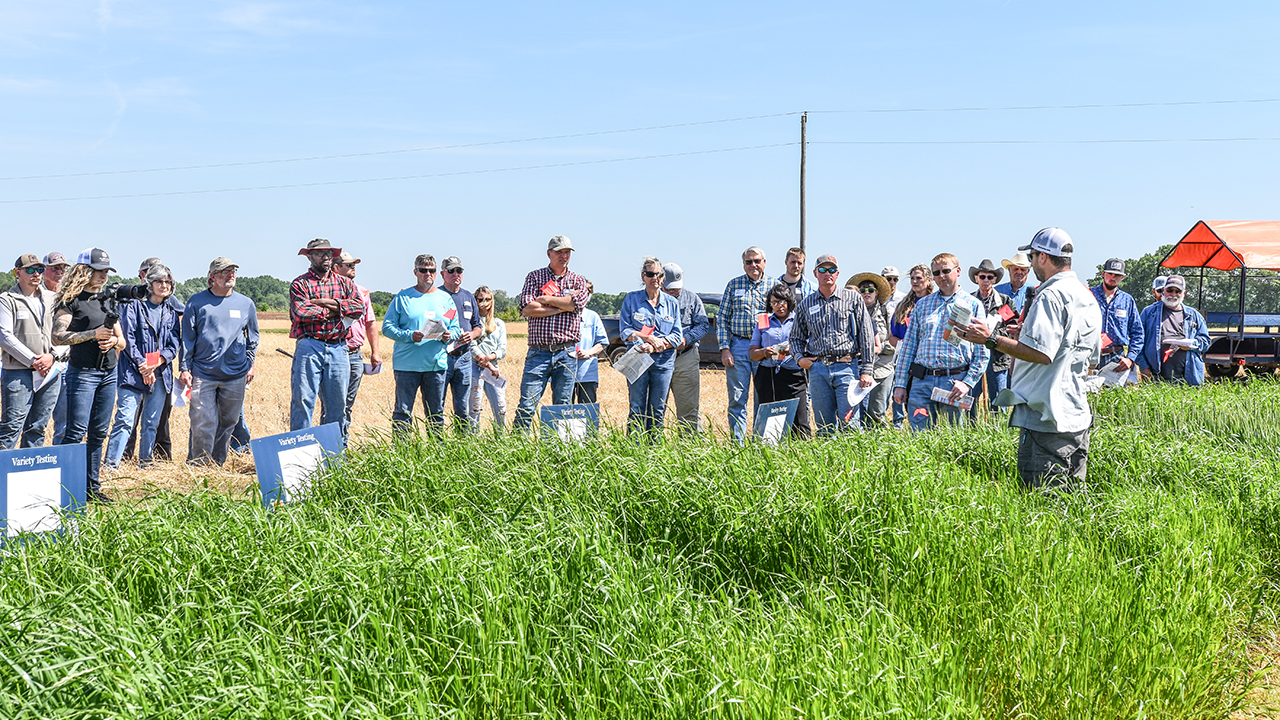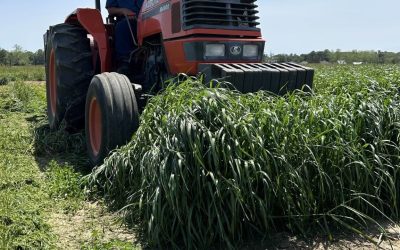Auburn University
Variety Testing Program

Variety evaluation is also critical to plant breeders, both from universities and industry. Prior to releasing a new variety, these breeders typically evaluate their lines in independent variety trials. This ensures that they have unbiased data from multiple years and locations to support the release of their new variety.
The mission of the Auburn University Variety Testing Program is to provide research-based, unbiased results on the performance of various crop hybrids, cultivars, and varieties to the agricultural community in Alabama. We are intent on conducting these trials in a manner that will result in maximum biological yield through methods common to the top-producing farms in Alabama.
We are committed to providing this information in a timely manner for its use during the decision-making process. The success of the program rests on our ability to help Alabama producers provide a safe, dependable source of food and fiber for all families as well as an economic sustainability for theirs.

Henry Jordan
Variety Testing Manager, Research Associate IV
Subscribe to AU Variety Testing Updates
Annually, the Auburn University Variety Testing Program conducts trials on corn, cotton, soybeans, peanuts, grain sorghum, wheat, barley, oats, triticale, small grain forages, and ryegrass.
Trials are conducted on Auburn University owned and operated agricultural research stations across the major geographical regions of the state. The research conducted at each of these locations can provide stakeholders with data that can be more representative of their growing conditions.
More 3rd Party Data – Jay, FL
Cotton, corn, and soybean variety trial results from the West Florida Research and Education Center in Jay, FL can now be incorporated into the variety selection process for Alabama stakeholders. Because both states use Medius Ag as their variety trial database...
2024 Summer Field Day Opportunities
There are multiple opportunities to visit the Auburn University Research and Extension Centers, learn from and interact with specialists, and see current research in person. The dates and locations are below.Wednesday, July 31 Tennessee Valley Research and Extension...
Performance of Small Grain Varieties in Alabama, 2023-2024
July 22 - Head dates from the SMREC are available. July 2 - Results are available from Sand Mountain Research and Extension Center (SMREC) in Crossville. Wheat OVT Barley OVT - only disease ratings June 21 - Results are available for the wheat and barley OVTs...
Winter Forage Summary Tables, 2023-2024
July 19 – Forage quality results are available from the WREC. Samples from two replications were collected, ground, and analyzed for quality. Additional locations are being processed, and results will be posted when they are available. June 27 - Yield results from...
Performance of Ryegrass Varieties in Alabama, 2023-2024
July 19 - Forage quality results are available from the WREC. Samples from two replications were collected, ground, and analyzed for quality. Additional locations are being processed, and results will be posted when they are available. June 27 - Results are...
Small Grain Summary Tables, 2023-2024
July 2 - The North Region summary is complete. Statewide summaries are updated. June 13 - The Central Region summary is complete. Please note that 2024 yields are from BBREC only. June 4 - The summaries below will provide readers with shortcuts to some of the most...



